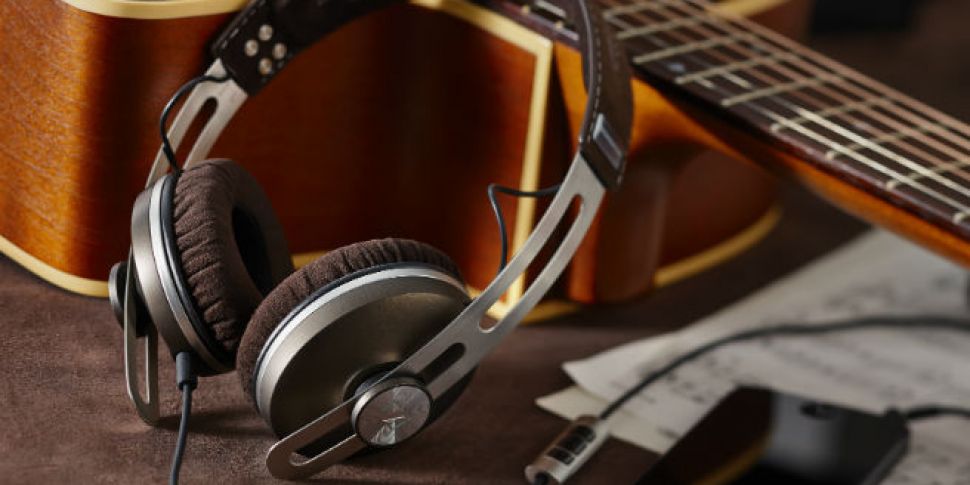Of all the different types of retailers out there, few can offer the same experience as a music store. Walking in to a shop and being greeted by all shapes and sizes of musical instruments remains a very unique experience and pleasure.
Like many businesses, however, the last few years have proven a major challenge for traditional music stores. Increased competition from online stores - not to mention the dear old recession - have seriously affected the sector. So how have they faced these difficulties and kept themselves relevant?
Newstalk's business editor Ian Guider recently spoke to representatives from three long-running Irish music stores – John Paul Prior from Dublin’s Musicmaker, Geraldine Byrne from Charles Byrne Music Instruments and Tommy Leddy from the Sound Shop in Drogheda. One thing they all agreed on was how they've changed their businesses over the last few years to ensure their long-term success.
Musicmaker:
“I think it's established itself as an institution in Dublin," John Paul Prior said of Musicmaker, one of the capital's key rock stores that has been open since 1980 and in its current Exchequer Street location since 1986. "We now have generations of musicians coming through our doors.”
The store has seen some interesting changes in the types of products sold, with acoustic guitars and home recording equipment increasing in popularity over recent years.
Nontheless, the economic downturn forced the owners “to have a really good look at our business and how we can reinvent ourselves.” They’ve started an e-commerce site, with Prior saying it is the more global and European sites they’re competing with as opposed to domestic competitors.
It is important to offer customers something beyond a simple online store, however. For Musicmaker, it’s about providing customers with a unique experience. For example, Prior points out that they, "try and support musicians by organising gigs throughout the city... on the roof of Facebook and Twitter.
"When you shop at Musicmaker, we’ll try and sort you out with a gig in the city as well, and that’s how we try to differentiate ourselves. We’ve had Rihanna’s band in, Beyonce’s band, Lady Gaga’s band… It absolutely converts into sales, and I think we have a pretty loyal customer base as a result, and you see it growing all the time.”
Then there is social media, which can play a key role in building a customer loyalty. “Facebook is extremely strong for us,” says Prior. “We have around 23,000 fans. It’s a huge part of our sales strategy. We post each day, and we can see people coming through the doors the following day buying the products.
"We probably made some mistakes in the past… [but] we pulled back to one post of real quality per day, and we’ve reaped the benefits of that from a sales point of view. Facebook gives us an opportunity to tell a story: old businesses are sometimes afraid of Facebook, but actually they have the advantage because they have the history.”
The Sound Shop:
“There have been an awful lot of changes from the time we started in 1968,” Leddy reflects. “In the beginning, it was just accordions and céilí bands… but now we’re a general music shop. Acoustic guitars would be the biggest sellers of all the instruments. Electric guitars have died – all the girl bands and boy bands out aren’t playing any instruments. We need an Oasis and a U2 and a Corrs – when The Corrs were out every girl wanted to play drums!”
The times they have a-changed, so how has The Sound Shop adapted along with them? Leddy states that “Facebook is the best instrument we have now” and their online business is doing well – they even receive regular enough orders from countries like Germany and Belgium.
He stresses the importance of in-store expertise, saying “the lads we have in the shop… the customers come to talk to them. [Our staff] are experts. We’d be an information shop along with everything else… but we nearly always manage to turn the info into a sale.”
Leddy also doesn’t seem worried about cheaper retailers like supermarkets, pointing out that “you can buy a guitar cheap, but you won’t get the quality you get in a music shop”.
All three of the stores place a lot of importance on a new generation of musicians, and The Sound Shop takes that a step further. As Leddy points out, “we have a school of music with about 400 pupils. We teach all instruments, and it helps sales.”
Like the others, Tommy is positive about the future. “The first quarter of this year we were up," he affirms. "So I think the recession has turned. My two sons are going to keep it going for years and years.”
Charles Byrne Music Shop:
Charles Byrne Music Shop was founded in 1870, and any business that survives for almost 150 years will require a whole lot of change. Geraldine Byrne, whose great grandfather started the business, explains how they still specialise in stringed instrument, and “we do a lot of specialist things – [musicians] who have very specialist needs for strings – we’re who they go to for that.”
Like the other stores, the recession has affected Byrne’s buying habits and business strategies. However, she is also keen to mention that the shop has also seen a lot of growth.
“For us, schools are really returning to music,” she says, “so we’re involved with a lot of schools trying to set up music departments. In some cases we have grandchildren and sometimes great grandchildren coming in… we have parents coming in saying ‘I came in when I was five and started my instrument here’, so that’s really lovely and a big part for us.”
Byrne believes that traditional music stores and the instruments they sell can serve an important role in a world dominated by new technology. “We have parents come in a lot and say they want their kids off the iPad - something that is non-electronic. We provide an experience – we spend a lot of time with our starters, whether they’re children or adults.
"We have a lot of information, a very strong expertise to offer, and we make it fun for them. When children realise that after a very short period they can make a sound, there’s fun to be had. You’ve hooked them for life. Whether they keep up with it or not, they’ll always enjoy music more because they’ve tried to learn an instrument.”
It’s that expertise and customer service that Byrne believes is key, along with embracing the opportunities offered by their website, web store and social media pages. She even says that rather than online taking away from business, it has actually helped it. “Customers can [research] online," she explains.
"But choosing the right musical instrument or what string to buy? You need help sometimes. They come armed with information, but they buy with us in person.”
Byrne is confident the business will pass to another generation: “We’ll reinvent ourselves - we have already over the years. We’ll keep changing, but we’ll be there.”









